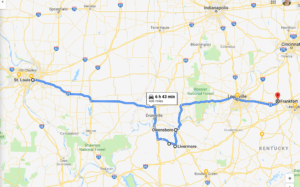 Tomorrow’s the big day. I’m going to leave bright and early to travel to McLean County, Kentucky, where I haven’t been for five years. I have been preoccupied with planning it for the last month or more and now it’s time to pack up my stuff and go. After a day in McLean, I’ll move on to Owensboro for the morning, then Frankfort, where I’ll stay three nights. I’ve been very keen to do a lot of planning so I wouldn’t waste any time while I was there. I actually placed a lot of pressure on myself, I think.
Tomorrow’s the big day. I’m going to leave bright and early to travel to McLean County, Kentucky, where I haven’t been for five years. I have been preoccupied with planning it for the last month or more and now it’s time to pack up my stuff and go. After a day in McLean, I’ll move on to Owensboro for the morning, then Frankfort, where I’ll stay three nights. I’ve been very keen to do a lot of planning so I wouldn’t waste any time while I was there. I actually placed a lot of pressure on myself, I think.
Time will tell whether I’m right, but here are the initial lessons I feel I’ve learned:
- At some point I had to call it done. I was poring over repositories’ catalogs and my family tree, trying to fine-tune my lookups and I realized I needed to decide I’ve finished, pack up and relax.
- Less is more. When I initially started planning this trip, I though I’d spend time in Louisville and Bowling Green repositories, but after taking a realistic look at the time I had available, I decided to pare the trip down to just three locations. That gives me more breathing room, which feels much better.
- The little repositories are as intriguing as the big ones. Kentucky has some great repositories for genealogists in Frankfort and I can’t wait to explore them. But I’m equally excited to visit the McLean County Historical and Genealogical Museum just three blocks from my B&B in Calhoun. I’m confident the folks there will point me to resources I couldn’t find elsewhere. I will also visit the Genealogy Room of the McLean County Public Library in Livermore to see what I might find there. And I’m excited to pay another visit to the Kentucky Room of the Daviess County Public Library in Owensboro where I hope to do some newspaper research on some indexed articles (obits mostly) about ancestors. I’m also looking forward to seeing their vertical files.
- It’s important to build in some flexibility. Five years ago, when I took a trip to both Kentucky and Alabama, I was so glad I allowed myself some flexibility to change things up. I ended up staying longer in Kentucky and lopping the more distant Alabama destination off my itinerary. This time, I’m allowing myself the option to stay away an extra day if need be. And I have a just-in-case plan to go to Louisville, if I tap out early on the resources in Frankfort.
- I can’t necessarily count on technology. I’m going to stay at a B&B in the tiny town of Calhoun, Kentucky, where my ancestors live. When I spoke with the owner last week, she mentioned that the internet was down in the entire town that day. She hoped it would be back. What? I’m planning my trip in Trello, but it requires the internet in order for me to access it. I’m assuming I’ll have cell phone service, but sometimes that can be spotty. So I’m doing something I don’t do much of: I’m printing out the things I’d be lost without (both literally and figuratively) that day.
- Depth beats breadth. I have a lot of ancestors who lived in Kentucky, particularly in McLean County. I’ve been figuring out what resources not available on the Internet I might be able to find out about them when I’m on this trip. As part of the prep for this trip, I’ve spent more time looking into my 2nd great grandfather, George Washington Adams (1845-1938)–whom I thought I had known pretty well. Well, newspaper research this month revealed something I hadn’t known: he was a member of state legislature in the last decade of the 19th century. So I’ve decided I’d really like to spend time in McLean researching context so I can understand more about how he lived. (I heard a great talk from Elizabeth Shown Mills on context at the NGS conference, which is inspiring me.) That might mean I find out fewer facts about other ancestors, but I’m okay with that. And, of course, the context I learn will help me with other ancestors who lived in that time and place as well.
- I’m going to be kind to myself. I have high hopes for this trip, but if they don’t all pan out, that’ll be okay. I know it’s not going to be perfect and I won’t kick myself when I realize what I could have done differently. I’m staying at an AirBnb in Frankfort and while I hope my evenings will involve some planning for the next day, I also plan to let myself relax. I also plan to eat well. I’m fortunate that I love spending time by myself, so hanging out on my own in an AirBnb is my idea of a good time.
I’ve literally been thinking about this trip for years. I feel I’ve prepared well. We shall see whether I’ve over- or under-prepared. I will certainly let you all know how it goes!
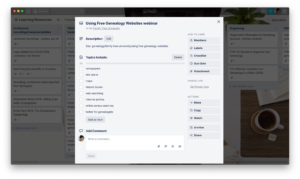
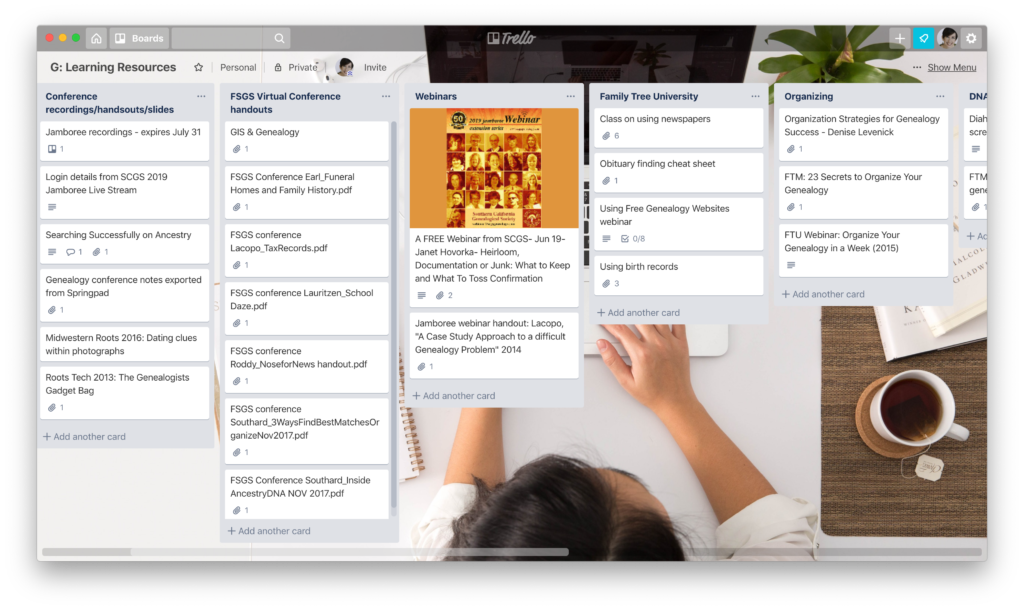
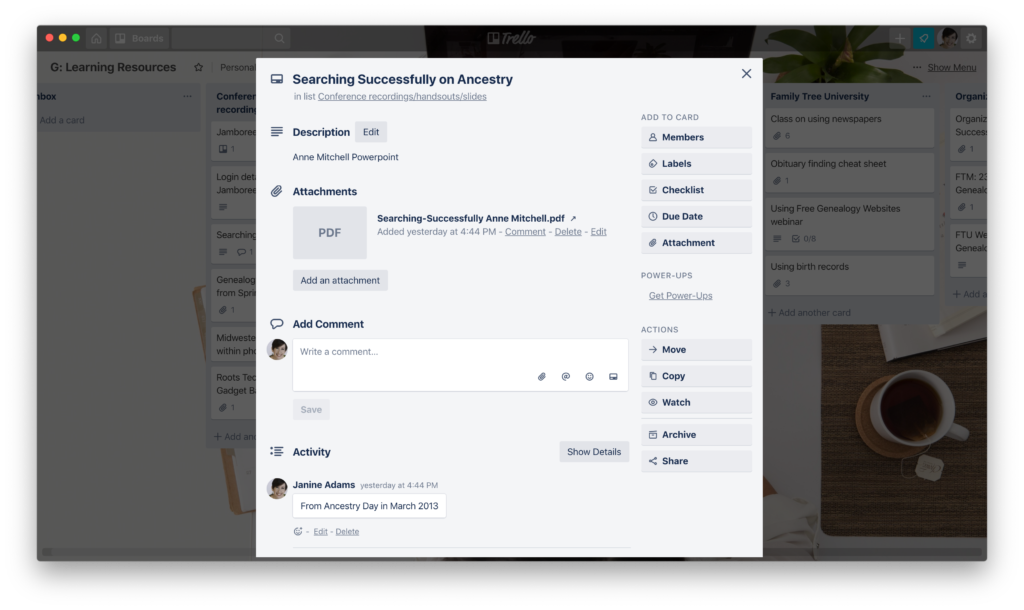
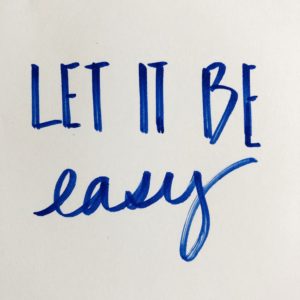 As I’ve posted here, I’m planning a
As I’ve posted here, I’m planning a 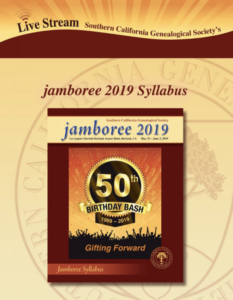 The Southern California Genealogical Society puts on a terrific conference each year. It’s called the Genealogy Jamboree and it’s being held this weekend in Burbank, California. I attended the Jamboree in 2015 and it was excellent. Since I’m not able to go this year, I was thrilled to learn that
The Southern California Genealogical Society puts on a terrific conference each year. It’s called the Genealogy Jamboree and it’s being held this weekend in Burbank, California. I attended the Jamboree in 2015 and it was excellent. Since I’m not able to go this year, I was thrilled to learn that 